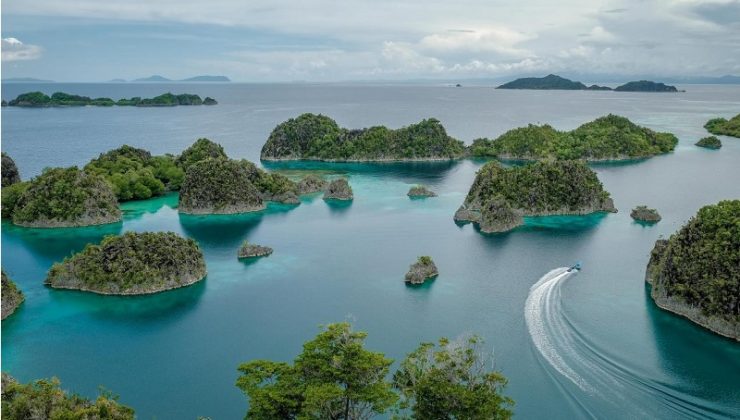THE MINISTRY of Tourism has taken three strategic steps to address the issue of nickel mining, which has allegedly impacted the natural beauty of Raja Ampat in West Papua.
On Thursday (06/6), 2025, the Tourism Minister, Widiyanti Putri Wardhana, made an official statement in Jakarta. In her statement, she stressed the importance of achieving balance between economics and ecology, especially in the tourism sector.
“We want any development, including tourism, to maintain a balance between ecology, social territory, and economic scale,” he said.
Widiyanti revealed the first strategic step taken by the Ministry of Tourism. This step involved a direct visit to Raja Ampat from May 28 to June 1, 2025, with the Indonesian Parliament. The purpose of this visit was to absorb the aspirations of citizens and indigenous peoples.
On this occasion, the community stated that they had decided to reject the plan for granting a new mining permit.
“They emphasized that the ecosystem and identity of Raja Ampat must be maintained as a tourist area, not an extractive industrial area,” he said.
In this regard, the House of Representatives Commission VII is dedicated to addressing concerns regarding environmental pollution caused by nickel mining, as it pertains to the Indonesian Parliament.
Additionally, the House of Representatives Commission VII has requested that the central government evaluate mining permits as part of a strategy to safeguard the Raja Ampat ecosystem.
On Wednesday, June 4, Widiyanti proceeded with the second phase of her agenda, which included a scheduled meeting with the Governor of Southwest Papua, Elisa Kambu, in Jakarta. During the meeting, the Ministry of Tourism and the Governor of Southwest Papua expressed their commitment to preserving the ecology of Raja Ampat.
“The local government has emphasized that the Raja Ampat region is to be maintained as a sea conservation area, UNESCO Geopark, and Indonesian tourism destination, without any compromise from mining activities,” Widiyanti stated.
On Thursday, May 6, the Ministry of Tourism held a coordination meeting with the National Economic Council (DEN) to discuss the long-term protection measures against Raja Ampat.
One of the primary initiatives under consideration involves the designation of Raja Ampat as a Special Economic Zone (KEK). This area will prioritize quality tourism, focusing on sustainable tourism and green investment that benefits both the community and the environment.
Widiyanti stated that the development of tourism in Raja Ampat must be based on environmental sustainability and the welfare of the local community.
The Raja Ampat region’s future development will be guided by three core principles: sustainability, social justice, and ecosystem resilience. [antaranews/photo special]
















